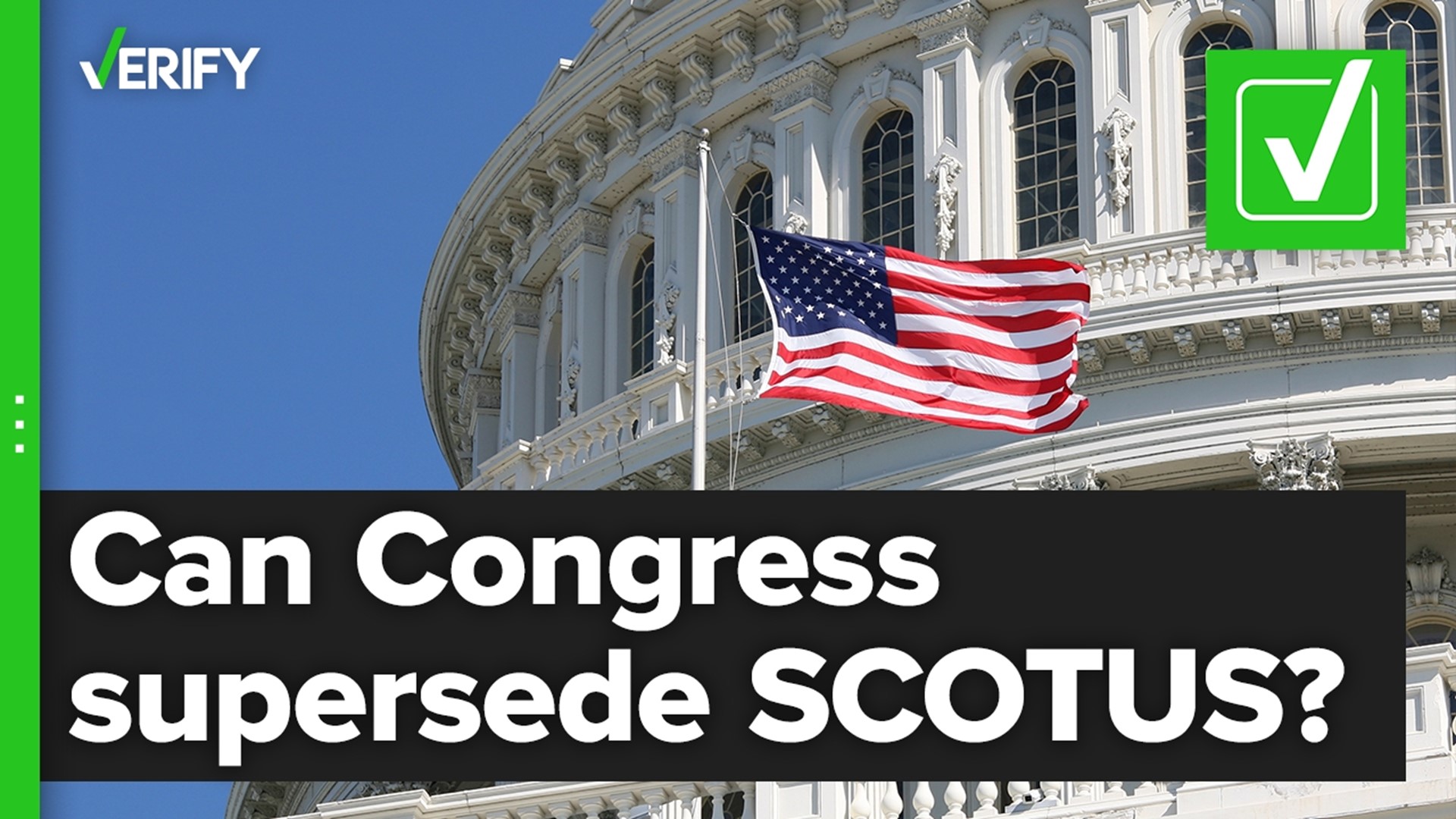On June 24, the Supreme Court ruled to overturn Roe v. Wade, a decades-old decision that granted the federal right to abortion.
“The constitution does not confer a right to abortion,” the ruling in favor of Mississippi’s anti-abortion case, Dobbs v. Jackson Women’s Health Organization, said.
The decision not only overturned Roe v. Wade, but also Planned Parenthood v. Casey, which was a 1992 ruling that upheld the federally protected right to abortion.
In May, a draft opinion of the ruling was leaked to POLITICO, and at the time the Supreme Court confirmed the authenticity of the draft opinion.
Following the leak, some online users speculated what U.S. lawmakers could do to ensure abortion rights were federally protected. In May, Sen. Bernie Sanders (D-Vt.) called for legislation that would codify, or put into law, the rights established by Roe v. Wade.
THE QUESTION
Can Congress pass a law that supersedes a Supreme Court ruling?
THE SOURCES
- Casey Burgat, director of the Legislative Affairs program at the George Washington University Graduate School of Political Management
- Doron Kalir, clinical professor of law at Cleveland-Marshall College of Law
- The Women’s Health Protection Act
- The Supreme Court
- U.S. Constitution
THE ANSWER
Yes, Congress could pass a law that supersedes a Supreme Court ruling, but the Supreme Court could strike it down as unconstitutional.
WHAT WE FOUND
Even though the Supreme Court overturned Roe v. Wade, Congress could introduce and pass legislation that would federally protect abortion services. That would effectively supersede the court’s decision, George Washington University Professor Casey Burgat told VERIFY via email in May.
“However, and this is a big however, SCOTUS could then deem the new abortion law unconstitutional in a future case,” Burgat wrote. “A federal law is the best, most legitimate means of codifying the principles of Roe v Wade. It's not bullet-proof because a future Supreme Court case can render the new law unconstitutional, but it's by far the most feasible strategy to make abortion legal in all U.S. states.”
Lawmakers introduced legislation last year that would codify Roe v. Wade, but, so far, it has failed to become law. The Women’s Health Protection Act of 2021 was first introduced in the House in June 2021. In September 2021, the bill was passed in the House 218-211. On Feb. 28, the Senate voted against bringing the bill to the floor.
Doron Kalir, clinical professor of law at Cleveland-Marshall College of Law, said if the Women’s Health Protection Act was passed in the Senate and signed into law by President Joe Biden, it would likely be contested in lower courts immediately and could make its way back to the Supreme Court in a matter of weeks.
Kalir told VERIFY the decision by the Supreme Court only applies at the federal level, and not at the state level. Since Roe v. Wade was overturned, individual states will have more leniency to create their own laws.
“That’s precisely why they have the Ninth Amendment, the Ninth Amendment reads specifically that any right that is not mentioned specifically in the Constitution is reserved to the state and the people respectively … Congress is bound by the federal constitution and the rights that they have,” Kalir said.

